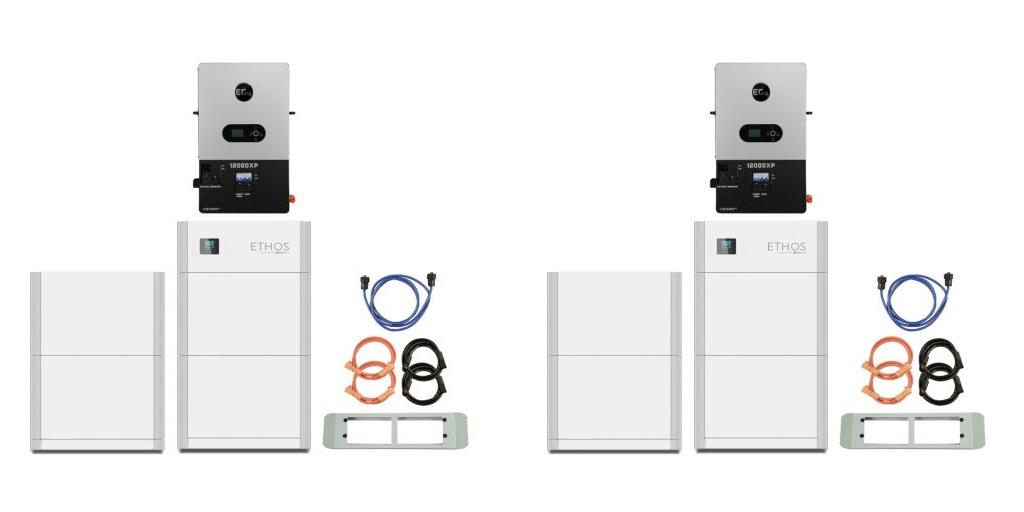Common Misconceptions About Solar Power and Batteries

Many homeowners are considering solar as a way to cut costs and gain more control over their energy use. Interest is growing every year, yet many people still hold onto myths that create confusion when planning a system. Understanding the facts about solar panels and a solar panel battery will help you make better choices for your home.
Solar Panels and Blackouts
One of the biggest misconceptions is that solar panels alone will keep your home running during a power outage. Most grid-tied systems automatically shut down when the grid goes dark. This prevents electricity from flowing back into power lines while crews are repairing them. If you want backup power, you need a solar panel battery. With storage, you can keep essentials like lights, refrigerators, and medical devices running until the grid is restored.
Solar Power Performance
Another common belief is that solar panels work the same everywhere. Location matters. A 5 kW system in Arizona may produce over 8,000 kWh per year, while the same system in Seattle produces closer to 5,000 kWh. Sun hours, roof angle, and shading all affect output. You do not need perfect weather to benefit, but you should have realistic expectations.
Utility Bills and Savings
Some expect their electricity bills to disappear once panels are installed. In reality, most households remain tied to the grid. Even if your solar system covers most of your usage, you will likely still see utility charges for connection fees. Adding a solar panel battery helps you store extra energy and rely less on the grid, but total elimination of a bill is rare unless you design a fully off-grid system.
Environmental Impact
A solar panel battery does more than provide backup power. It reduces your reliance on the grid, which often depends on fossil fuels. By storing solar energy during the day and using it at night, you cut demand for electricity from coal or natural gas plants. This lowers carbon emissions and makes your energy use cleaner.
There are also growing recycling programs for lithium-ion batteries. As more homes and businesses install storage, manufacturers and recycling facilities are expanding their ability to recover valuable materials like lithium, cobalt, and nickel. This helps reduce waste and supports a more sustainable cycle for battery production.
Cost Myths
Many people assume solar remains too expensive. This was true in the early 2000s, but costs have dropped by more than 60 percent in the last decade. The average installed residential system in the U.S. now costs between $15,000 and $25,000 before incentives. Federal tax credits can cut this by 30 percent. Batteries add to the investment, often $7,000 to $15,000 installed, but they also add value by providing backup power and helping you shift energy use to lower-cost hours.
Common Misunderstandings to Avoid
Here are frequent misconceptions that you should keep in mind when planning a system with a solar panel battery:
- Panels do not always provide power during outages without storage.
- Bigger systems are not always better if your utility limits net metering credits.
- Batteries do not last forever; most lithium-ion models last 10 to 15 years before replacement.
- Panels still work on cloudy days but at reduced efficiency.
- A properly installed system does not damage your roof; it can actually protect the shingles beneath.
- Solar does not cover every type of energy use; heating or heavy industrial loads may still need other solutions.
- Maintenance is minimal, but inverters and batteries may need service or replacement over time.
- Solar is not free after installation; there are ongoing costs.
- Savings vary widely depending on your utility rates and policies.
- Off-grid systems require careful planning and larger storage to remain reliable.
Making the Right Choice
When you weigh these facts, solar power becomes much clearer. You can see where panels and storage fit into your lifestyle and budget. The key is matching the right system size with your actual energy needs and deciding if you want backup power during blackouts. For most homeowners, a solar panel battery adds security and helps maximize self-consumption of solar energy.
If you are ready to explore storage options that fit your system, visit BigBattery online for reliable, high-capacity solar panel battery solutions.
For more information about Best Rv Battery and Boat Battery Lithium Please visit: BigBattery.
- Art
- Causes
- Crafts
- Dance
- Drinks
- Film
- Fitness
- Food
- Games
- Gardening
- Health
- Home
- Literature
- Music
- Networking
- Other
- Party
- Religion
- Shopping
- Sports
- Theater
- Wellness



